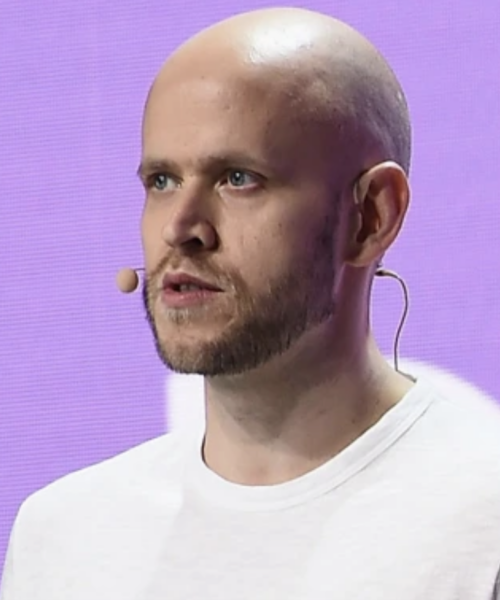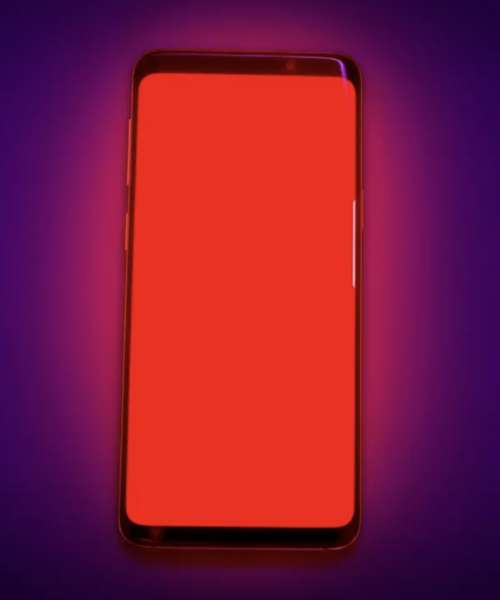BY TRILBY BERESFORD | HollywoodReporter.Com
Troy Warren for CNT
The co-founder talks with The Hollywood Reporter about shifting priorities in the pandemic, an ongoing partnership with Electronic Arts and the challenge of making Parsec a tool that can be employed by different industries.
Among the video game and media industries, Parsec became a known word during the height of the coronavirus pandemic when remote access to games became crucial. Games were still being rapidly made and played, and many needed to be demo-ed or previewed without people physically being in an office to connect to a workstation.
Parsec existed before COVID-19 took hold, having been co-founded by CEO Benjy Boxer and CTO Chris Dickson in 2016. “Our goal was to essentially free people up from being locked in front of their gaming PC [and] their expensive hardware, so they could have the freedom to access their software content and tools from anywhere, on any device,” Boxer tells The Hollywood Reporter.
This was accomplished through ultra low latency streaming technology. Boxer explains that when they started, the team wondered who the “most discerning” customer in the world would be — and if they could get it right for that customer, they could get it right for everyone else. He and Dickson identified the gaming industry in that scenario, because elements like performance and high frame rates really matter.
“We always wanted to find ways to use our technology to give people ‘superpower’ — not just to make things a little bit better, but to introduce totally new ways of doing things.” Among these features is the ability for one to invite a friend to play games on their computer, which allows players to connect with each other for games that, ordinarily, the friends would need to sit in front of the same computer to play. Similarly, an Arcade function allows players to list their game and allow anyone to join in.
When the pandemic hit in full force, Parsec was in demand when a lot of studios started reaching out asking for the remote access technology to include a “business” version, which birthed Parsec for Teams around March 2020. The crew at Parsec had identified that their tool, which was regularly used for games, could be “repurposed and used for work,” such as being able to remotely access the hardware that stays sitting at the office while employees work from home.
Remote computer access, in and of itself, is not at all a new phenomenon — the space has included for many years traditional desktop tools such as TeamViewer, Citrix and VMware Horizon, though these services are not catered toward the video game industry, from consumers to professionals requiring no lag or latency, in such a robust way. There are other cloud-gaming platforms, both free and paid, though few with such a pandemic-driven rise.
Amid Parsec’s ascent as game studios began reaching out for assistance with remote press events, it prompted the company to establish a guest access feature that allows admins in Parsec for Teams to further manage the computers in their organization. “That was all customer demand, we did not expect that at all,” says Boxer.
One of the first game-centered customers back in April 2020 was Electronic Arts, which, as Boxer explains, “took a leap of faith” in using Parsec and envisioning how it could be used as a tool for game studios to do play-testing and other essential needs.
These early experiences demonstrated to Parsec how big companies deploy software to thousands of computers. “Parsec was initially a consumer product and we assumed that the person using it would just download it to their computer and use it, but that’s not how big companies work — the IT department has to distribute software, and so we had to learn how to make that all functional.”
Among Parsec for Teams’ recent features is an API (application programming interface), which allows teams to automate many core functions. “We believe the future is giving the studios and IT departments the ability to automate the whole thing,” Boxer explains, giving the example of an employee who needs to connect to a PC for work and is given access by Parsec to enter a secure group or shared computer.
Many of Parsec’s customers are now moving their build machines — those used to make games — into server rooms in office spaces, then using Parsec to give people shared access. The goal is for all of this to be “fully viable for a big enterprise,” says Boxer.
Parsec recently worked with the Tribeca Film Festival, doing virtual game demos of eight different games that people signed up for from all over the world. Boxer explains that this process — which typically would have been done in New York City in person — used the aforementioned guest access product and APIs to essentially automate the process of joining Parsec at the appointed time and to build a new experience for Tribeca’s own customers.
In December 2020, Parsec raised $25 million in Series B funding led by Andreessen Horowitz, to advance its remote work and cloud-gaming capabilities. “The vast majority of that capital is going to be used to innovate on the technology — the product itself,” says Boxer. Since the financing was established, Parsec has grown from around 15 people to 50.
In addition to EA, the company works with clients including Ubisoft, Square Enix, Blizzard Entertainment and plenty of others. In media, its clients include Toei and Encore Hollywood. Boxer notes that some of the broadcast companies that Parsec works with are moving their operations to centralized locations so that they don’t have to send people to event venues to operate certain broadcasts, which saves on travel costs.
Citing research from Stanford about how hybrid work models are becoming more prevalent, Boxer brings up the point that numerous employees at companies across a range of industries beyond video games — such as engineers at architecture firms — need remote access to high-powered computers, or will in the future.
“The challenges are, especially when you’re working with people who demand the highest performance, is that they have lots of other peripheral tools that they use to get their jobs done,” says Boxer, giving the example of gamepads or tablets for drawing. “Every industry uses different devices,” he emphasizes, noting that while the games industry is “pretty much” covered, Parsec is moving further into areas such as architecture and movie studios.
“We just have keep up as we move from industry to industry, with the tools that those people use,” concludes Boxer, whose favorite genre of games is, naturally, resource management.
In Other NEWS



































